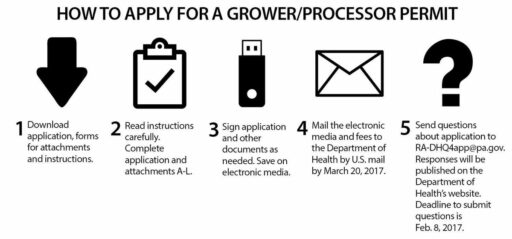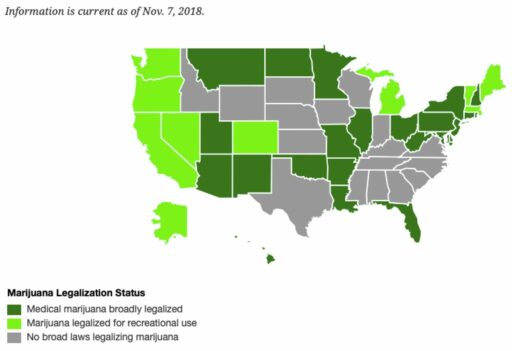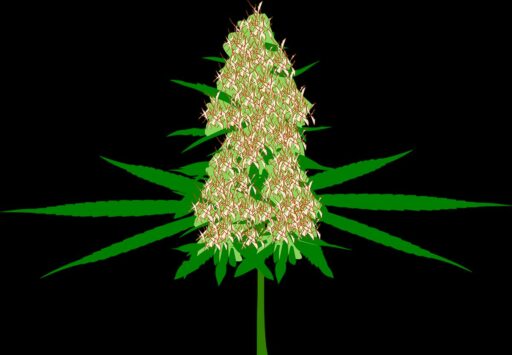Pennsylvania’s marijuana laws are in a state of flux, with significant developments occurring in the push for legalization, the nuances of current legislation, and the comparison with neighboring states. This comprehensive guide delves into the existing laws, recent efforts towards decriminalization, and the potential future of marijuana policy in the Keystone State.
Key Takeaways
- Governor Josh Shapiro has advocated for the legalization of recreational marijuana in Pennsylvania, signaling a potential shift in state policy.
- Despite decriminalization efforts in over 30 cities, Pennsylvania saw approximately 12,000 arrests for marijuana possession in 2022, primarily by state police.
- Legislative attempts for marijuana reform have faced setbacks, and there is skepticism among lawmakers about significant reform occurring in 2024.
- With five neighboring states having legalized recreational marijuana, Pennsylvania faces economic and social pressures, as well as interstate issues, related to its current marijuana policies.
- Public opinion in Pennsylvania shows a nuanced view on legalization, recognizing potential benefits while remaining cautious about possible downsides.
The Current State of Marijuana Laws in Pennsylvania

Overview of Existing Legislation
In Pennsylvania, the legal framework surrounding marijuana is a complex tapestry of state statutes and local ordinances. The state has legalized medical marijuana, allowing patients with qualifying conditions to access cannabis for therapeutic purposes. However, recreational use remains illegal under state law, with possession of small amounts often resulting in fines or criminal charges.
Despite the statewide prohibition, several cities have enacted their own decriminalization policies. These local efforts reflect a growing trend towards more lenient approaches to marijuana possession. For instance, Philadelphia and Pittsburgh have both passed ordinances that reduce penalties for small amounts, replacing potential jail time with civil fines.
The disparity between local decriminalization and state prohibition highlights the evolving landscape of marijuana legislation in Pennsylvania.
While the state has not fully embraced legalization, the conversation continues to evolve, influenced by developments in policy, public opinion, and the experiences of other states.
Decriminalization Efforts in Cities
In Pennsylvania, the movement towards decriminalizing marijuana has been gaining momentum, particularly within its cities. Activists argue that decriminalization is a critical step that precedes full legalization, a strategy that has been observed in other states. For instance, in New Jersey, the attorney general halted prosecutions of marijuana arrests years before legalization was implemented.
Decriminalization efforts in Pennsylvania cities aim to reduce penalties for marijuana possession, aligning with a broader trend observed in neighboring states, except for West Virginia.
The impact of these efforts on public safety and crime rates has been a subject of study. Research indicates that decriminalization does not significantly affect the general crime rate and may even contribute to a decrease in certain instances. This challenges the notion that marijuana legalization leads to increased crime.
Here is a snapshot of Pennsylvania’s progress in decriminalization:
- Over 30 cities have enacted ordinances to decriminalize or reduce penalties for marijuana possession.
- Arrests for marijuana possession in Pennsylvania numbered around 12,000 in 2022, with most arrests made by state police.
- Studies suggest that decriminalization has a neutral or potentially positive effect on crime rates.
Arrest Statistics and Law Enforcement
In 2022, Pennsylvania saw approximately 12,000 arrests for marijuana possession, reflecting the ongoing tension between state law enforcement and local decriminalization efforts. Despite over 30 cities enacting ordinances to reduce penalties, state police remain the primary enforcers of marijuana laws.
Activists argue that decriminalization is a necessary precursor to full legalization, which would include regulated sales.
The disparity in enforcement and the high number of arrests have sparked protests and calls for reform. Chris Goldstein of NORML highlights the daily impact of these laws, stating, "Here in Pennsylvania we’re still arresting 35 people every single day just for marijuana possession."
| Year | Arrests for Possession |
|---|---|
| 2022 | 12,000 |
The statistics underscore the need for a coherent state-wide policy that reconciles local decriminalization efforts with state law enforcement practices.
The Push for Legalization and Recent Developments

Governor Shapiro’s Stance on Recreational Use
Governor Josh Shapiro has made a clear stance in favor of legalizing recreational marijuana in Pennsylvania. In his budget address on February 6, 2024, Shapiro highlighted the potential economic benefits, citing over $250 million in annual revenue that could be generated once the industry is fully implemented. He emphasized that the current prohibition only serves to bolster the black market and strain law enforcement resources.
Critics, however, raise concerns about the impact of legalization. State Rep. Aaron Bernstine expressed skepticism about the projected financial benefits and warned of increased government intervention in local businesses. Moreover, there are apprehensions regarding the regulatory framework and its implications for local ownership and accountability.
The debate on legalization extends beyond economic factors, touching upon the social and regulatory aspects that will shape the future of Pennsylvania’s local communities and businesses.
Legislative Attempts and Setbacks
Despite ongoing discussions and proposals, Pennsylvania’s legislative attempts to reform marijuana laws have faced significant hurdles. Rep. Seth Grove expressed skepticism about major reforms occurring this year, citing a lack of concrete legislation and unanswered questions from regulatory bodies. Similarly, efforts in the PA House to legalize recreational marijuana were recently withdrawn, signaling a challenging path ahead for advocates of legalization.
The divided General Assembly has struggled to find bipartisan support for marijuana-related legislation, leaving many initiatives stalled.
Here’s a brief overview of recent legislative actions:
- Withdrawn Amendment: An amendment to legalize recreational marijuana was withdrawn from the PA House.
- Bipartisan Support: Lack of bipartisan support has prevented many proposed bills from becoming law.
- Budget Committee Concerns: The House Budget Committee has expressed concerns over the absence of detailed legislation.
As we approach 2024, the political landscape remains uncertain, with both setbacks and potential for future legislative progress.
Public Opinion and Activism
In Pennsylvania, the debate over marijuana legalization is not just confined to legislative chambers but also resonates strongly with the public and activists. Public opinion has increasingly favored legalization, with numerous advocacy groups pushing for reform. These groups often utilize media platforms to amplify their message, sometimes sidestepping traditional advocacy routes.
- Activists call for legalizing pot while state police leaders express caution.
- Advocacy efforts include supporting current legislation and mobilizing public support through events and media outreach.
- Critics argue that some activists prioritize media attention over genuine policy change.
The intersection of public sentiment and activism plays a crucial role in shaping the future of marijuana policy in Pennsylvania. The collective voice of the people, as expressed through various platforms, cannot be ignored in the ongoing discourse.
Navigating the Legal Landscape: Possession, DUI, and Other Offenses

Consequences of Marijuana in Vehicles
In Pennsylvania, the presence of marijuana in your vehicle can lead to significant legal repercussions. The state has adopted a zero-tolerance policy for driving under the influence of drugs (DUID), which includes any detectable level of marijuana in the system. This means that even if you are not actively using marijuana while driving, having it in your car could result in a DUI arrest.
The legal landscape in Pennsylvania is clear: leave marijuana out of your vehicle to avoid the risk of severe penalties.
While the law is stringent, the actual outcomes of such arrests can vary. Here’s a brief overview of the potential consequences:
- Immediate arrest and vehicle impoundment
- Suspension of driver’s license
- Fines and potential jail time
- Mandatory drug education or treatment programs
It’s crucial for drivers to be aware of these laws to prevent the negative impact on their lives and the lives of others on the road.
Understanding DUI Laws Related to Marijuana
In Pennsylvania, driving under the influence (DUI) of marijuana remains a serious offense, with the state enforcing stringent laws to deter impaired driving. The presence of marijuana in a vehicle can significantly increase the risk of a DUI arrest, even if the driver is not actively under the influence at the time of the stop. Recent legislative efforts aim to clarify the legal status of medical cannabis in DUI cases, ensuring that patients are not unjustly penalized.
- Medical cannabis users may soon find some relief in Pennsylvania. A bill approved by lawmakers seeks to protect those legally prescribed marijuana from DUI charges solely based on the presence of the drug in their system.
- Non-medical users, however, still face strict penalties, with the state’s zero-tolerance policy for THC in the bloodstream while operating a vehicle.
The complexity of DUI laws related to marijuana in Pennsylvania underscores the importance of understanding both state and federal regulations. While the state works to accommodate medical users, the risks for recreational users remain high.
The table below outlines the basic structure of DUI penalties related to marijuana in Pennsylvania:
| Offense | Penalty | License Suspension |
|---|---|---|
| 1st DUI | Fine, possible jail time | 12 months |
| 2nd DUI | Increased fines, jail time | 18 months |
| 3rd DUI | Severe fines, extended jail time | 18 months+ |
It is crucial for drivers to be aware of these laws to avoid the severe consequences of a marijuana-related DUI.
Penalties for Possession and Distribution
In Pennsylvania, the penalties for marijuana possession and distribution vary based on the amount and intent. Possession of a small amount for personal use may result in lesser penalties compared to distribution or possession with intent to distribute.
- Possession of 30 grams or less: Misdemeanor, up to 30 days in jail, and a fine of up to $500.
- Distribution of 30 grams or less: Similar penalties as possession, misdemeanor charge.
- Sale/Manufacturing: Charges escalate with the amount and can lead to significant jail time.
The legal repercussions for marijuana-related offenses in Pennsylvania are not only punitive but also carry long-term consequences that can affect employment, education, and housing opportunities.
The state’s approach to marijuana offenses has resulted in a substantial number of arrests. For instance, in 2023, Butler County reported several adults charged with sale/manufacturing and a notably higher number for possession. This disparity highlights the ongoing debate over the criminalization of marijuana and its impact on society.
Comparative Analysis: Pennsylvania vs. Neighboring States

Legal Status in Bordering States
Pennsylvania’s approach to marijuana legislation stands in contrast to its neighbors. All states bordering Pennsylvania, with the exception of West Virginia, have embraced the legalization of recreational marijuana. This creates a patchwork of policies that directly impacts residents and law enforcement at the state borders.
| State | Legal Status |
|---|---|
| New York | Legal |
| New Jersey | Legal |
| Ohio | Medical use only |
| Maryland | Legal |
| West Virginia | Medical use only |
| Delaware | Legal |
The disparity in laws can lead to a variety of interstate issues, particularly concerning the movement of individuals and goods across state lines. > The proximity to states where recreational use is legal may influence both public opinion and legislative momentum within Pennsylvania.
While Pennsylvania lawmakers have expressed some optimism about finding common ground on marijuana policy, the reality of legislative reform remains uncertain. The evolving landscape of marijuana laws in the region underscores the complexity of achieving a cohesive approach to legalization and regulation.
Impact on Interstate Issues
The patchwork of marijuana legislation across state lines presents a complex landscape for Pennsylvania. The state’s position on marijuana, juxtaposed with varying laws in neighboring states, creates unique challenges. For instance, while Pennsylvania grapples with its own legalization debates, differing policies in bordering states can lead to a spillover of both legal and illegal activities.
-
Business Implications: Local businesses may face difficulties due to the federal classification of marijuana as a Schedule I narcotic. This discrepancy can result in banking issues and missed opportunities, as interstate commerce becomes entangled with conflicting state and federal laws.
-
Law Enforcement Concerns: The potential for increased juvenile arrests and related crimes is a concern for law enforcement. The accessibility of marijuana in states where it is legal could inadvertently affect Pennsylvania’s youth and contribute to public disorder.
The interplay between state autonomy and federal oversight remains a pivotal point in the ongoing discourse surrounding marijuana policy. The implications for business, law enforcement, and culture are profound, necessitating a coordinated approach to address these interstate issues.
Economic and Social Considerations
The debate surrounding the legalization of marijuana in Pennsylvania extends beyond legal implications to significant economic and social considerations. Legalizing adult-use marijuana could be a substantial revenue source for the state, with estimates suggesting a potential generation of $255 million in new tax revenue, according to Governor Shapiro. This financial aspect is crucial as it could support various state-funded programs and initiatives.
However, the economic impact is not the only factor at play. Social implications, such as the potential for increased local entrepreneurship and accountability, are also pivotal. It is suggested that the processes for operating recreational marijuana facilities should be distinct from medical ones to foster local ownership and ensure community engagement.
The introduction of a legal cannabis market in Pennsylvania would necessitate a careful balance between economic benefits and social responsibilities, ensuring that the growth of the industry does not come at the expense of local communities.
Furthermore, the legalization could reshape the cultural landscape, influencing everything from employment opportunities to public health education. Policymakers must consider these multifaceted effects to ensure that any transition towards legalization is equitable and inclusive.
Looking Ahead: The Future of Marijuana Policy in Pennsylvania

Potential Benefits and Downfalls of Legalization
The debate on legalizing marijuana in Pennsylvania encompasses various pros and cons, with public opinion and expert analysis at the forefront. On the positive side, legalization could lead to enhanced quality control and safety for consumers, as well as significant economic benefits. Governor Shapiro highlighted the potential for over $250 million in annual revenue, a figure that cannot be overlooked in the context of state finances.
However, concerns persist, particularly regarding the impact on youth and public safety. Law enforcement officials, like Butler County Sheriff Mike Slupe, express apprehension about increased access to cannabis potentially leading to a rise in juvenile arrests and related crimes. The balance between these benefits and downfalls is delicate, and the state’s decision will have far-reaching implications.
The decision to legalize marijuana carries with it a complex array of potential outcomes, each requiring careful consideration to ensure the well-being of Pennsylvania’s citizens and the integrity of its legal system.
Regulatory Challenges and Opportunities
The prospect of legalizing marijuana in Pennsylvania brings with it a complex array of regulatory challenges and opportunities. Ensuring the safety and integrity of marijuana products is paramount, necessitating a robust regulatory framework. This includes product testing, packaging standards, and age restrictions to prevent sales to minors.
Local entrepreneurs and businesses may face hurdles in adapting to new regulations, which could mirror those of the medical marijuana sector. It is crucial that these regulations foster local ownership and accountability, rather than stifling it. The potential for significant revenue generation is clear, with estimates suggesting over $250 million annually. However, this must be balanced against the costs of regulation, which some argue could expand government roles unnecessarily and drain resources.
The successful implementation of a legal marijuana market in Pennsylvania hinges on the careful balance between opportunity and oversight.
While the debate continues, it is evident that Pennsylvania stands at a crossroads, with the potential to harness a burgeoning industry or to continue contending with the ramifications of the black market.
Predictions for Marijuana Legislation in 2024
As Pennsylvania approaches 2024, the trajectory of marijuana legislation remains a topic of intense speculation. The withdrawal of a marijuana amendment from the PA House in 2023 may indicate a cautious approach, yet it also underscores the inevitability of future attempts to reform cannabis laws. The coming year is likely to see renewed efforts, with advocates and legislators drawing on lessons from past initiatives.
The landscape of marijuana policy is complex, influenced by a myriad of factors ranging from public opinion to economic incentives. Here are some key considerations that may shape the legislative agenda:
- The impact of federal drug law on state legalization efforts
- The evolving stance of lawmakers and public officials
- The role of medical marijuana in shaping broader cannabis policies
- The influence of marijuana industry growth on economic arguments for legalization
While predictions are inherently uncertain, the momentum behind marijuana legalization suggests that Pennsylvania may witness significant legislative activity in 2024. The state’s residents and policymakers alike are keenly aware of the shifting tides, and the conversation around cannabis is more nuanced than ever before.
Conclusion
As we navigate the complex landscape of marijuana laws in Pennsylvania, it’s clear that the state is at a crossroads. With neighboring states embracing legalization and public sentiment shifting, Pennsylvania’s lawmakers are grappling with the potential benefits and challenges of legalizing recreational marijuana. The recent push by Governor Josh Shapiro for legalization, alongside the ongoing debate in the legislature, reflects a broader national trend towards reevaluating cannabis laws. However, concerns about public safety, particularly DUI arrests related to marijuana, remain a significant hurdle. The state’s history of arrests for possession and the patchwork of local decriminalization efforts underscore the need for a cohesive approach. As 2024 unfolds, Pennsylvania stands on the brink of change, with the actions of its legislators and the voices of its citizens poised to shape the future of marijuana policy in the Keystone State.
Frequently Asked Questions
What is Governor Josh Shapiro’s stance on marijuana legalization in Pennsylvania?
Governor Josh Shapiro has called for the full legalization of marijuana for recreational use, as part of his budget address on February 6, 2024.
Are there any cities in Pennsylvania that have decriminalized marijuana?
Yes, over 30 cities in Pennsylvania have ordinances that decriminalize or reduce penalties for marijuana possession.
How many marijuana possession arrests were made in Pennsylvania in 2022?
Around 12,000 people were arrested for marijuana possession in Pennsylvania in 2022.
What are the legal implications of having marijuana in your vehicle in Pennsylvania?
Having marijuana in your vehicle in Pennsylvania can lead to serious consequences, including DUI arrests, as the state has strict laws regarding the possession and transportation of cannabis.
What is the status of recreational marijuana legalization in the states bordering Pennsylvania?
All states bordering Pennsylvania, except for West Virginia, have legalized recreational marijuana.
What are some potential benefits and downfalls of legalizing marijuana in Pennsylvania?
Potential benefits include economic growth and increased tax revenues, while downfalls might include public health concerns and regulatory challenges. Public opinion varies, with some believing it will have positive outcomes and others concerned about negative impacts.





